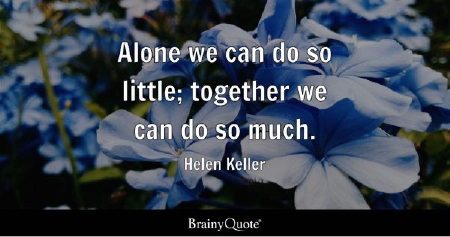Delving into Universal Health Coverage in South Africa

Delving into Universal Health Coverage in South Africa
In honour of Universal Health Coverage Day (celebrated globally on December 12), we are delving into what Universal Health Coverage means in a South African context.
Read on to find out more about:
- Universal Health Coverage Day.
- What is What is Universal Health Coverage?
- The South African Healthcare Landscape.
- Government initiatives: The National Health Insurance (NHI).
- Collective Aspirations Towards Healthcare for All.
Universal Health Coverage Day is celebrated annually on December 12 around the world.
It marks a day when all countries agreed that everyone should have affordable, accessible, and good healthcare.
When observing Universal Health Coverage Day, we aim to raise awareness and unite governments, healthcare providers, and others to work towards a common goal. That is, to ensure everyone can get the healthcare they need without struggling with money.
Universal Health Coverage Day shows a global promise to provide healthcare for everyone, making people healthier, reducing poverty, and helping the world grow sustainably.
In the pursuit of a healthier and more equitable society, the iconic words of Nelson Mandela resonate profoundly: "Health cannot be a question of income; it is a fundamental human right."
"Health cannot be a question of income; it is a fundamental human right."—Nelson Mandela
This powerful declaration, articulated during the launch of South Africa's inaugural Public-Private AIDS Treatment Site at G. F. Jooste Hospital in Cape Town on December 1 2003, reminds us of the intrinsic connection between health and human rights.
Mandela's statement lays the foundation for understanding the imperative of ensuring healthcare access for all, irrespective of economic standing.
What is Universal Health Coverage?
Universal Health Coverage (UHC) is defined by the World Health Organization (WHO) as "ensuring that all people obtain the health services they need, of good quality, without suffering financial hardship when paying for them".
In short, UHC is a health system goal aiming to ensure all individuals and communities receive essential health services without financial hardship.
The core principle of UHC is to provide access to quality healthcare services that do not cause financial strain. Such services include prevention, treatment, rehabilitation, and palliative care.
By reducing the financial burden associated with healthcare, UHC can:
- reduce infant mortality,
- improve life expectancy,
- prevent and control diseases, and
- promote overall well-being.
The South African Constitution explicitly recognises every individual's right to access healthcare services. This aligns with the core principle of UHC, which seeks to provide health coverage for all.
In his keynote address during the Policy Dialogue on Universal Health Coverage in South Africa, held on Universal Coverage Day in 2022 under the theme "Build the World We Want: A Healthy Future For All," Dr Joe Phaahla, Minister of Health, delivered a compelling message, underscoring the significance of constructing a resilient health system, emphasising its pivotal role in progressing towards the realisation and provision of Universal Health Coverage (UHC) in South Africa. His words resonate with a profound commitment to advancing a future where everyone has equitable access to comprehensive healthcare.
To fully understand the concept of UHC in South Africa, providing a synopsis of the South African healthcare landscape is crucial.
The South African Healthcare landscape: its challenges and achievements.
South Africa has a dual healthcare system comprising the public and private sectors.
- The public healthcare system serves the majority of the population. The government provides it through facilities such as public hospitals and clinics.
- The private healthcare sector caters to those who can afford private medical services. It is characterised by private hospitals, specialists, and medical schemes (health insurance).
The government funds the public healthcare system, while the private sector relies on a combination of out-of-pocket payments and private health insurance (medical schemes).
The South African healthcare system faces a variety of challenges. There are significant disparities in healthcare access and outcomes between urban and rural areas and among different socioeconomic groups. This means not everyone gets the same quality of healthcare.
The public healthcare system is often overstretched due to a high burden of diseases such as HIV/AIDS, tuberculosis, and non-communicable diseases. This strain can result in long waiting times, overcrowding, and shortages of essential supplies and healthcare professionals, particularly in rural areas.
Over and above staff shortages, healthcare facilities lack adequate infrastructure, medical equipment, and resources, hindering quality healthcare services. The financial constraints are an added challenge, impacting the ability to provide comprehensive and universal healthcare services to all citizens.
While challenges have been glaring, some progress has been made in other areas, such as the provision of antiretroviral treatment for HIV-positive individuals- with SA having one of the largest treatment programmes globally.
Furthermore, efforts have been made to strengthen primary healthcare services, including community-based healthcare programmes and initiatives and improvements in maternal and child health, resulting in reduced child mortality rates. Another notable success is using community health workers to reach underserved communities, providing essential health education and facilitating healthcare access in remote areas.
Policy Efforts towards Universal Health Coverage: The National Health Insurance (NHI).
The South African government has introduced several initiatives and policies to achieve access to quality healthcare services for all citizens.
One of those initiatives is the development of the National Health Insurance (NHI) scheme. The NHI is South Africa's strategy for achieving universal health coverage.
The NHI is a fund from which the government will buy healthcare services for South Africans from healthcare providers both in the public and private sectors. The goal is to make healthcare more affordable by reducing the cost of healthcare for all.
It acts like a medical aid for everyone, and all of us will contribute to this fund through taxes and special contributions in line with what we can afford. It will ensure that everyone is entitled to free healthcare when needed. There will be no fees charged at the facility because the fund will cover the care costs.
The NHI represents a fundamental shift in the healthcare system, aiming to transform how healthcare is financed and delivered in South Africa. It is designed to address the historical disparities and inefficiencies in the healthcare system by promoting universal access to quality healthcare services and ensuring a more equitable and inclusive healthcare system for all South Africans.

How will NHI benefit South Africans?
- The NHI fund will cover South Africans of all races.
- There will be one pool of healthcare funding for private and public healthcare providers.
- The cost of our healthcare system, which is currently the most expensive in the world, will be reduced.
- When people visit healthcare facilities, there will be no fees charged because the NHI fund will cover the costs of people's medical care in the same way that medical aids do for their members.
- NHI will narrow the gap between the rich and poor regarding healthcare standards.
- South Africans will no longer be required to contribute directly to a medical health scheme for quality health care. The NHI Fund will be funded from:
- General taxes,
- Contributions of persons earning above a set amount and
- Monthly contributions made by the employees to the fund.
Employers will assist the NHI Fund by ensuring that their workers' contributions to the NHI Fund are collected and submitted like UIF contributions.
NHI will not replace Medical Aid Schemes. Members will be free to continue with their medical schemes if they wish. When the NHI is fully implemented, the role of medical schemes will change as they will cover services that the NHI Fund does not reimburse.
Challenges in the implementation of NHI
South Africa has difficulty rolling out the National Health Insurance (NHI) policy. There are ongoing arguments on whether the NHI will provide access to the quality and equitable healthcare it intends and whether South Africa is ready to implement the policy.
While the principle behind the NHI (achieving Universal Health Coverage) is a noble one, its implementation in South Africa faces various challenges, namely:
- Financial constraints:
Given the country's economic challenges, allocating adequate funds for UHC while safeguarding other essential services is complex.
- Logistical and administrative challenges:
The NHI system's intricacies, insufficient healthcare infrastructure and a shortage of professionals, particularly in rural areas, hinder quality healthcare delivery. Successful Universal Health Coverage implementation requires robust healthcare management and administrative capacity. - Overcoming resistance from stakeholders, including the private healthcare industry.
- Lacking in areas of information technology and public awareness.
- Refining policies regarding governance.
Addressing these challenges requires a multifaceted approach to implement UHC in South Africa successfully. These include sustainable funding mechanisms, comprehensive policy reforms, infrastructure development, workforce capacity building, effective stakeholder engagement, and robust governance structures.
Achieving Healthcare for All: Community Engagement and Advocacy
The role of communities, healthcare professionals, and civil society in advocating for Universal Health Coverage.
Many countries that have implemented Universal Health Coverage lack community participation.
Collaboration is the key to success, as encapsulated by Helen Keller's words, "Alone, we can do so little; together, we can do so much."

Recognising the challenges faced in UHC implementation, the power of collaborative efforts is not just beneficial but essential.
Successful nations understand that active participation from communities, healthcare professionals, and stakeholders is the cornerstone of overcoming barriers and achieving an inclusive health system.
In the journey towards Universal Health Coverage, communities, healthcare professionals, and civil society can collaborate to unify their voices and make UHC a reality.
NHI approval marks a landmark step towards Universal Health Coverage in South Africa
While acknowledging Universal Coverage Day recently, we should also recognise a transformative milestone for South Africa's healthcare landscape.
The resounding approval of the National Health Insurance (NHI) by the Parliament on December 6, 2023, propels our nation closer to the ideals of Universal Health Coverage.
The NHI embodies the vision of a health system where no one is left behind. The parliamentary endorsement of the NHI resonates with Mandela's vision, affirming our commitment to a healthier, more equitable future.
As we embrace this endorsement, let us stand united in the belief that equal health is not just a goal but a shared responsibility. Together, we pave the way for South Africa to foster a legacy of health, hope, and harmony for future generations.
"Let us stand united in our quest for equitable healthcare. The journey to universal health coverage may be challenging, but the promise it holds—of a healthier, fairer society—is worth every effort, every voice, and every step taken together." - Anonymous.
REFERENCES
“NHI – Home.” National Department of Health. Accessed December 13, 2023. https://www.health.gov.za/nhi/.
Universal Health Coverage in South Africa: Minister Joe Phaahla: Available from: https://www.gov.za/news/speeches/minister-joe-phaahla-universal-health-coverage-south-africa-12-dec-2022#:~:text=The%20National%20Health%20Insurance%20NHI,irrespective%20of%20their%20socioeconomic%20status.
Shisana, O., Rehle, T., Louw, J., Zungu-Dirwayi, N., Dana, P., & Rispel, L. (2006). Public perceptions on national health insurance: Moving towards universal health coverage in South Africa. South African Medical Journal, 96(9), 814-818.
Darrudi, A., Khoonsari, M. H. K., & Tajvar, M. (2022). Challenges to achieving universal health coverage throughout the world: a systematic review. Journal of preventive medicine and public health, 55(2), 125.
World Health Organization. Universal Health Coverage (UHC) 2021. Available from: https://www.who.int/news-room/fact-sheets/detail/universal-health-coverage-(uhc)
https://www.tandfonline.com/action/showCitFormats?doi=10.2147/RMHP.S245615
